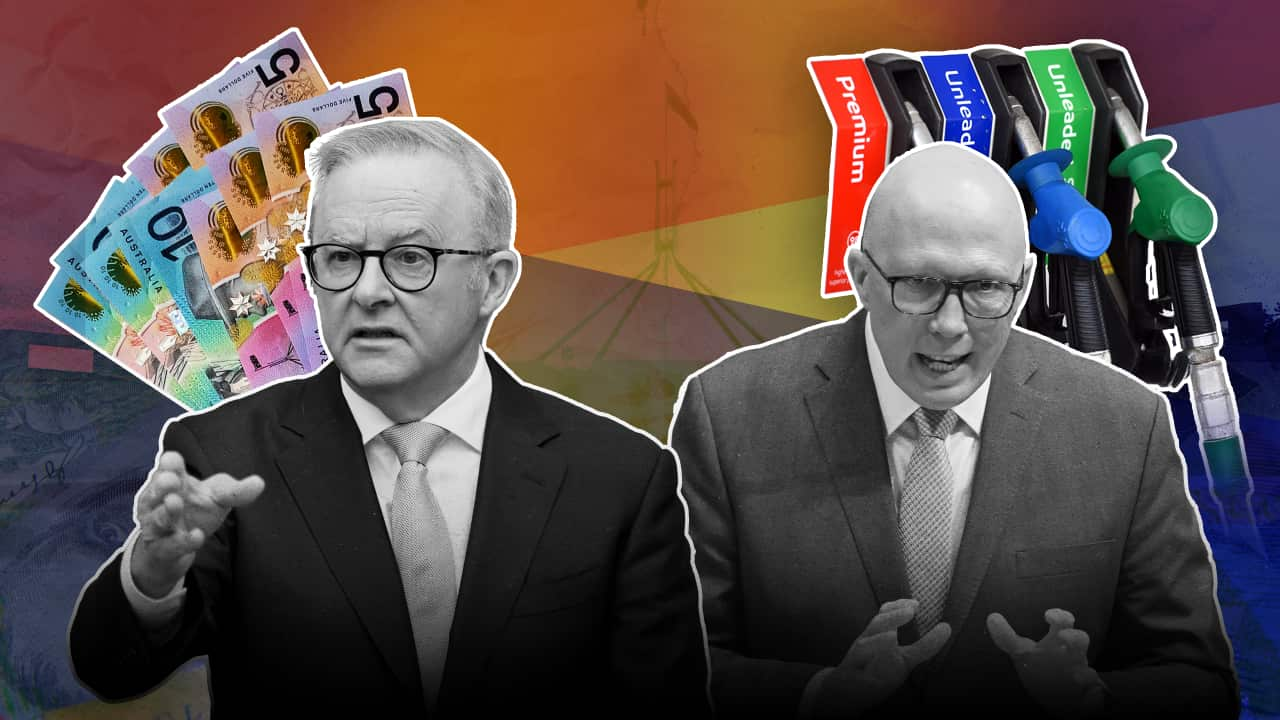Labor’s tax cuts promise relief to all taxpayers, while Opposition leader Peter Dutton’s proposed fuel excise cut aims to bring down petrol prices. But as experts weigh in, doubts are emerging about whether either policy will deliver meaningful relief to those who need it most.
The case for tax cuts
The Labor government has legislated to cut the lowest tax rate — which applies to incomes between $18,001 from $45,000 — by 1 per cent in July next year.
That will bring the tax rate in that income bracket down to 15 per cent, with a further percentage point cut to come the following year.
It's estimated that the revised tax cuts would give all taxpayers up to $268 in 2026-27 and $536 every year after that.
On average, most Australians affected by the cut will be saving roughly an extra $5 a week in the first year of the change followed by $10 per week each subsequent year.
Prime Minister Anthony Albanese has pitched the plan as a fairer approach to economic relief, highlighting that the changes will put more money into the pockets of everyday Australians rather than disproportionately benefitting high earners.
However, policital scientist Dr Paul Williams from Griffith University argues that the proposed tax cut is unlikely to sway voters.
"This is a cost of living election. In this climate, voters are sensitive to the hip pocket nerve. It's going to take more than a $5-a-week tax cut that will take a year to kick in to motivate those that are doing it tough. A vote choice is an incredibly complicated, nuanced process of factors," Williams said.
"If you look at Labor's budget, it was quite modest in its promises, and it was more or less compounding or extending programs that have been done before because it was a budget Labor didn't want, for an election they didn't want — Labor wanted the election last year so the timing is all out for them."
Dutton's fuel excise pitch
A Dutton-led Coalition government has promised to dump tax cuts in favour of a temporary cut to the fuel excise in a move it says would save families hundreds of dollars.
The proposal would halve the fuel excise for 12 months, lowering the rate on petrol and diesel from about 50 cents to 25 cents per litre. The plan would save a one-car family about $750 a year — or $14 a week — and a two-car family about $1,500 a year — or $28 a week.
It's expected to cost $6 billion a year.
Economist Thomas Walker argues that both tax cuts and fuel excise would do little to alleviate immediate financial pressures.
"These promises are so modest on both sides, they're going to have such a little impact on people's take-home pay in the next two to three years," Walker said.
"Cost-of-living increases — particularly in housing, groceries, and energy — continue to outpace wage growth, meaning extra dollars from tax relief may quickly be swallowed up by rising expenses.
"There are also concerns about the inflationary impact of injecting more disposable income into the economy — these policies also don't help those that need it most like students and those on JobSeeker benefits."
Both policies highlight how cost-of-living pressures are dominating the election agenda. But beyond tax cuts and fuel relief, Australians are grappling with housing affordability, wage stagnation, and rising essential costs.
While Walker adds that neither policy adequately addresses the root causes of financial strain, he says Australia is long overdue for "big picture" structural reforms.
"Tax cuts aren't tax reform," Walker said.
"Both sides refuse to address the structural inequalities, which are really evident to people. We have vast sums of money that are given out in tax breaks and concessions, flowing to the wrong people. Most economists say that our government is overly generous and we need tax reform, but both political parties just don't seemingly want to go there.
"This lack of big vision, big structural reforms is undoubtedly going to hurt future prospects of our country and for younger generations. So how this plays out politically, is going to be really interesting."



